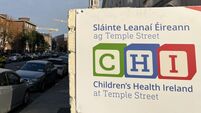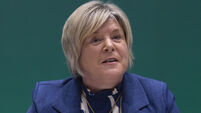'He’s been let down:' Mum speaks out about gaps in support for her son with Down syndrome

Charlotte and Kevin Hanley with young Caoimhín, Diarmuid, Gearoid, and Daithi at their home near Ballingarry, Co Limerick. Picture: Eamon Ward
“I love the bones of him” is how Charlotte Hanley sums up her relationship with son Daithi — but what she does not love is the system which is meant to support him.
Daithi, 6, is in junior infants and has Down syndrome.













